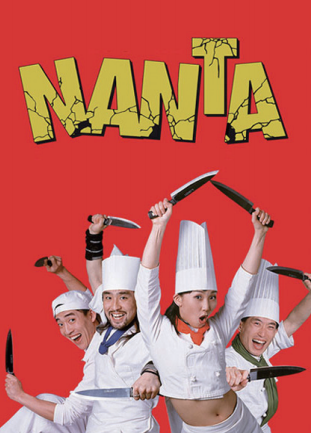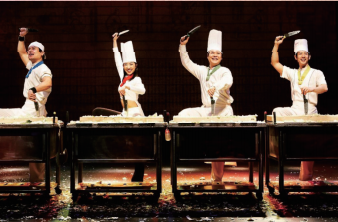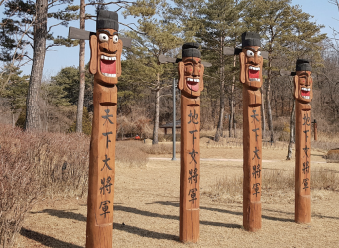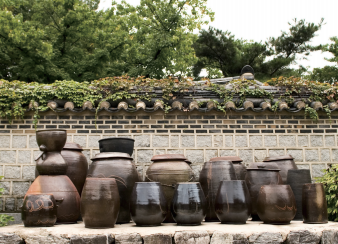Nanta is a popular non-verbal performance and has appeared on various television programs. It has a history of 23 years and is continuously loved by the public. Starting from 2009, it has been on an open run until now and showcases every day. However, due to the current issue regarding the novel coronavirus, all shows have been canceled. Professor Kim Byung-ho is a professor at SKKU in Culture and Technology and, at the same time, is an actor and the director of Nanta. Professor Kim Byung-ho works under PMC Production, a Korean performing arts company that created Nanta. Additionally, he was the monitoring director for Tokebi Storm and the overall director for B-boy Korea. The Sungkyun Times (SKT) decided to meet the director, Kim Byung-ho.
On the Earlier Life of Kim Byung-ho
Q1. Please introduce yourself to the Kingos.
I am Kim Byung-ho, and I am currently a director under PMC Production.
Q2. What type of student were you back in your school days?
I was the mood maker for my class. I am not sure if it is still there to this day, but back then, there was a period for games.

During those occasions, I would always be called first to set the mood. I was singing, dancing, and talking about my dreams. I have been interested in acting and directing ever since elementary school. Back when I was in elementary school, there was a comedy show called Luck Comes When You Smile, and particularly comedian Choi Yang-rak left a big impression on me. So, I started to reenact him and his jokes in the front yard of our village, and the children would love it. Their enthusiasm motivated me to do more, and I started to write short plays too.
Q3. Before becoming a director, you debuted as an actor and have also been a cast member of Nanta for four years. What made you decide to challenge yourself as a director?
As an actor, you live inside the character when you are on stage. However, you are unable to see the whole production. Actors tend only to be able to see themselves, and this can cause an error in their acting. For a higher quality of acting, directing is very important. Hence, to become a better actor, I decided to challenge myself in directing. I needed to step out of the frame and see myself in a different light, since becoming a director meant having to oversee the whole production and the characters’ settings in a wider and more meticulous way.
Q4. You are an actor, a director, and a professor. What is your driving force to be able to be so active in three different areas?
I have a clear goal: to be a better actor. This is why even when I started to teach students. I found out teaching was the best way to self-develop. My desire and ambition as an actor never diminished, and whenever I am teaching students, I learn so much with them. Therefore, when I first got the opportunity to teach in 2010, I wanted to give them the know-how and my knowledge with acting and directing while I continue to grow my acting and directing spectrum as well.
Director Kim Byung-ho
Q5. When you first became a director, what did you find different from being an actor?
First of all, I had to study a lot. I have to study five times more than when I was an actor because I not only had to understand each and every situation and emotion of the characters but also needed historical and philosophical knowledge and a deep understanding of the whole production.
Q6. How has the non-verbal performance of Nanta changed under your direction?
Since there is no dialogue, more detailed divisions were made to make the actors’ acting more detailed too. However, the changes that occurred in Nanta were made more when I was an actor than when I was the director. When Nanta was first made, there were no dialogues at all. Simply a situation would be given to them like you are cooking bulgogi this time, and it would be the actors’ job to do the rest. Compared to the past, Nanta has grown to have a simple yet strong storyline. For Nanta to be loved all over the world, which element did you focus on most? I focused on the reenactment of the omnipresent factors: the beats and the tunes, the common feature of a kitchen, and the interactions within. Nanta was not telling a philosophical or a social value story and instead was customized it with daily interactions, which can be easily understood by people of all ages.

Q8. When you are to select new actors, what do you consider as the most important trait? I consider the ability to perceive a situation and the capacity to sympathize importantly. Talent is important too; however, as an actor, being able to perceive a situation is perhaps most important. The ability to understand other’s feelings, the ability to feel and be in pain, and the ability to have fun with the audience are important traits to be a good actor.
Q9. What was the most challenging aspect of directing, and how do you overcome those hardships?
It is difficult when the goal and vision that the production crew had was delivered to the audience, but the audience does not respond or was unable to get the message. Additionally, being unable to figure out which part of the production was a miss that made the audience respond-less is also a difficulty I have faced.
When faced with such a problem, I do not think about it. I simply listen to music, read books, watch movies, and do other activities. After spending some time thinking, a solution just suddenly pops into my mind. Writing it down and brainstorming about it like a math equation does not solve the problem because sometimes the solution comes from having a conversation with a person or by reading a book. Even during my school days, when I could not concentrate, I would just go out and play soccer or play StarCraft. Spending my leisure time has become my muse, and I gain inspiration from it.
Q10. Your motto in directing Nanta is “The most Korean thing is the most global thing” and added Korean cultural factors to the production. Could you explain some of the Korean factors in the performance?
For visual factors, in the set of the performance, there is cheonhadaejanggoon, a man’s face carved in stone or wood, which is used to keep evil spirits away. Also, there is jangdokdae, a series of jars gathered together, and sotdae, a pole usually with a bird on top, which symbolizes protection and is placed in the entrance. Furthermore, if you look carefully at the feet of the cast, Hunminjeongeum, a document describing the Korean language, is written. In terms of music, traditional beats were used like obangjin and byeoldageori. That is why when foreigners hear this beat, they find it unique to listen to. The Korean beat is all related to respiration and the different breathings, which brings out the emotions.



In the Future of Kim Byung-ho
Q11. Is there a specific genre you would like to try and direct?
There are two. One of them is something related to science and history, as I am into these lately. Also, since information and communication technology (ICT) has been developing a lot, I want to create a performance like the Avengers: Endgame and be able to use computer graphics for the play. I would like to challenge myself in mixing analog and digital together. Second, in a small theater, I would like to produce a performance about my life and participate as both director and actor.
Q12. You are already making a name for yourself as a director, do you perhaps have plans as an actor?
I plan to continue it till death!
Q13. How do you want to be remembered by the public?
I prefer to be remembered as more of an actor than a director. “An actor who had various adventures” and “An actor who has his own philosophy” is what I want to hear.
Q14. Any last words for the Kingos?
What I need to do, what I love to do, and what I want to do. When these three become one, your power to change the future intensifies. When each person starts living with that in mind, you will be able to diffuse the contradictions of the older generations and create a new society for Korea and SKKU.
